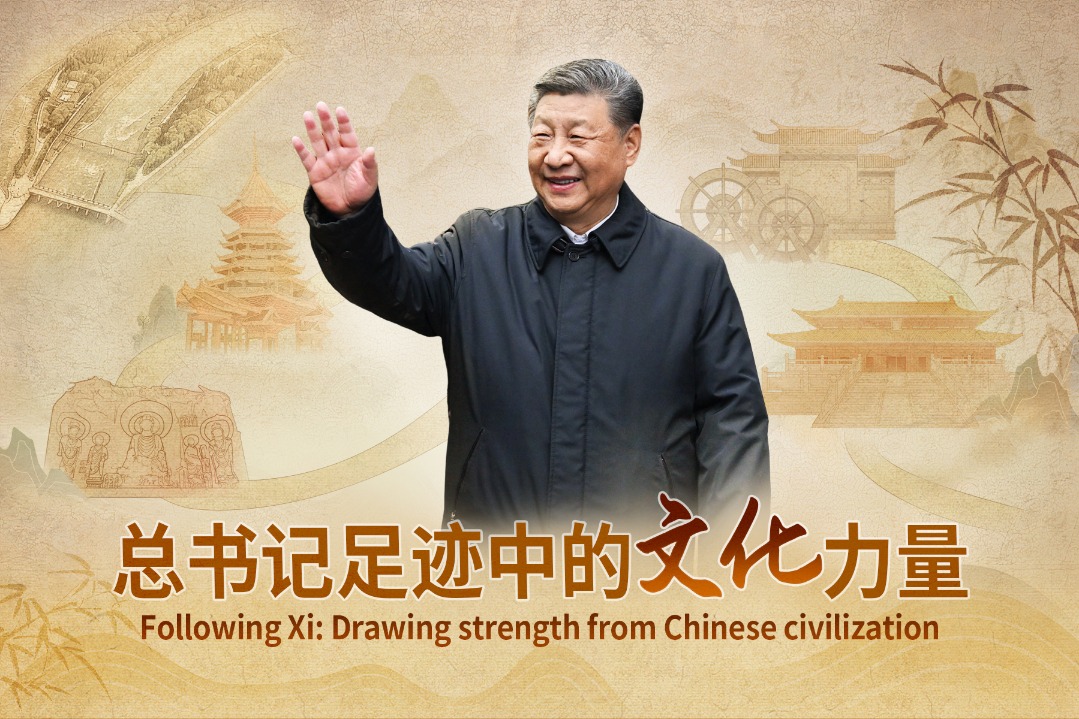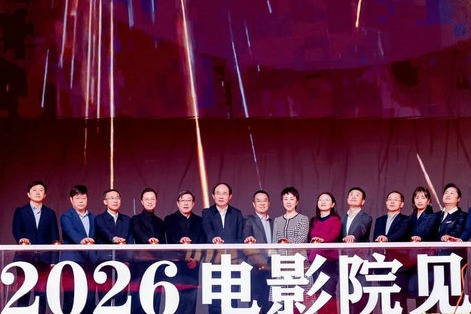The BEAUTY & WISDOM of the COUNTRYSIDE
A TV series endeavors to dispel stereotypes about rural living and pays tribute to village officials who aim to facilitate positive change, Cheng Yuezhu reports.

Deputy editor-in-chief of a newspaper, food blogger and village official-there's no doubt about the versatility and socially minded commitment of Sun Guangming.
But, if you're anxious that all these tasks risk driving Sun into the ground, worry not, for he is merely a fictional character, a protagonist in the TV series Going Rural. Then again, the series hints that those, like Sun, who give everything to serve their fellow villagers can be found all over China. The program tells of his struggle to make use of his skills to help revitalize a village, and in so doing it presents the idyllic beauty of a countryside that is prospering, in no small measure because of those who inhabit it.
The show begins with Sun being chosen as the resident Party secretary of Houshigou, a real village in Shandong province in which the series was filmed. Arriving in Houshigou, villagers are quick to start putting obstacles in his way, and he faces stiff opposition from powerful parties whose business interests clash with his ambitions.
The director, Li Yunliang, says the themes of the series are a dramatized retelling of real issues that many village officials faced, based on research the production crew carried out as early as 2015.
The team went on field trips around Shandong in search of an ideal filming location, Li says, and conducted interviews with village officials, as it sought faithfully to portray their efforts to alleviate poverty and revitalize the countryside.
"It's not just about poverty alleviation," Li says. "In our research we found the villages had shaken off poverty, and were highly attractive, prosperous places. So we looked to deal with how the villages could grow in a sustainable way."
In the series the crew was keen to reflect the modern face of rural China and, perhaps not surprisingly, ubiquitous throughout are features such as livestreaming and short video marketing.
"At the time, in the countryside of southwestern Shandong, e-commerce had taken off, and people were selling not only agricultural produce but light manufacturing materials as well," says Jing Lei, the producer. "These people were highly impressive in the way they skillfully used e-commerce platforms."
The crew spent more than six months traveling around the province before plumping for Houshigou village as the filming location, mostly because the crew was smitten by its idyllic landscape and the warmth of its people.
"The countryside should be able to evoke a pleasant impression," Li says. "In Western TV series and films countryside landscape is always presented as wonderfully beautiful and refined. I wanted to prove that we, too, are capable of shooting beautiful countryside scenes."
To accomplish this goal the crew chose the veteran art director Shao Changyong to ensure the aesthetic style and taste, to distinguish the series from its peers, and to banish the all-too-often seen stereotypes of the Chinese countryside.
"The stereotypical village officials you see in TV series and films are blemishless pillars of the community, who lack human warmth or humor," Jing says. "With our unconventional representations we are keen to educate our audience, to make them aware of the difficulties these officials face and of the extraordinary qualities they bring to the job."
Jin Dong, who plays the role of Sun, is from Shandong and says he is honored to portray this official from his province.
"I like the role a lot. In him we can see the characteristics of a rural official in the modern age, that is, a heartfelt love for life, work and the people. This love leads, and influences, more people to live with an optimistic attitude and contribute to revitalizing the countryside."
The storyline adopts both a comic and dramatic style, where the conflicts are exaggerated, but problems are always solved through effective communication.
"It's a theory of mine that we city dwellers tend to lose the ability to communicate with each other because we have so many places where we can hide," Li says. "It's so different out in the country, where people live side by side from generation to generation."
In his childhood, Li says, he lived in an area where everyone not only knew everyone, but knew about them. Once, when he got into a skirmish with another child, a fierce quarrel erupted between the two families, but by the end of the day they had managed to bury the hatchet.
These days when people get into conflicts with neighbors or colleagues, they have many options aside from resolving their differences, such as moving houses or changing jobs, never having to see one another again, he says. This ease with which one can simply run away from problems means people never communicate with each other on a deeper level or get to know one another well.
Since the show was aired, practical changes have been made to Houshigou village. During filming, the crew helped renovate the village, including renovating some roads and buildings, and the TV show has turned the village into a tourist magnet.
"Houshigou village is now a well-known location for filming, and the lives of the locals have been transformed," Jing says. "For that we are all very grateful. The village in the show went through industrial upgrades via tourism and the hotel businesses, and the real Houshigou village has prospered. The parallel development of the two villages makes each and every participant of this show very proud."


Today's Top News
- Poll findings indicate Taiwan people's 'strong dissatisfaction' with DPP authorities
- Xi emphasizes strong start for 15th Five-Year Plan period
- PLA drills a stern warning to 'Taiwan independence' separatist forces, external interference: spokesperson
- Xi, Putin exchange New Year greetings
- ROK leader's visit to help boost bilateral ties
- China's new plan, world's new opportunities






























